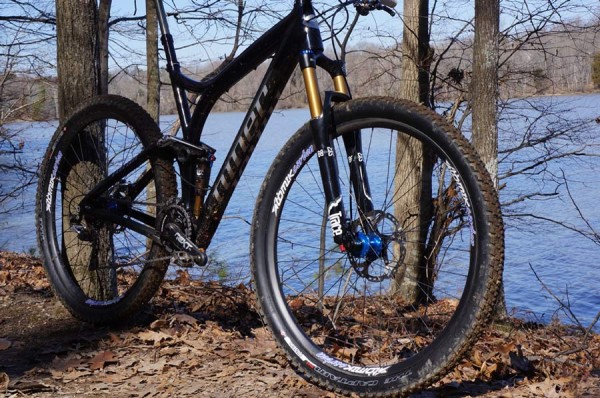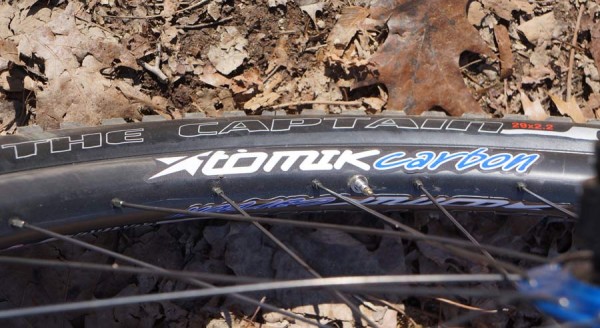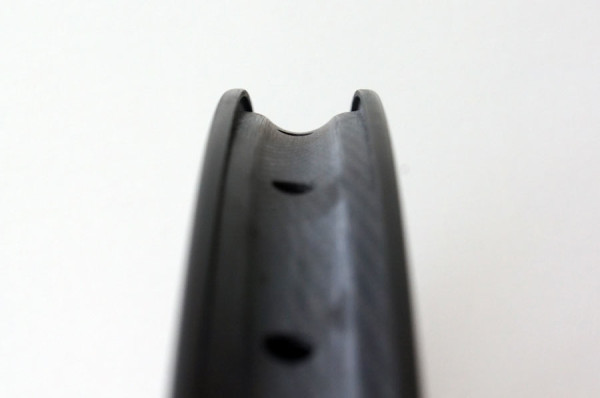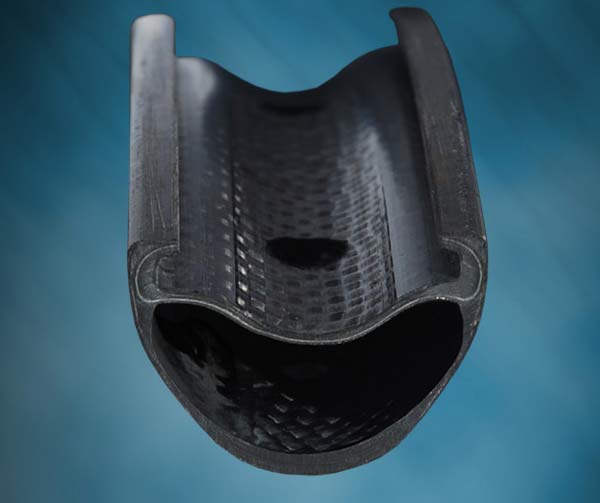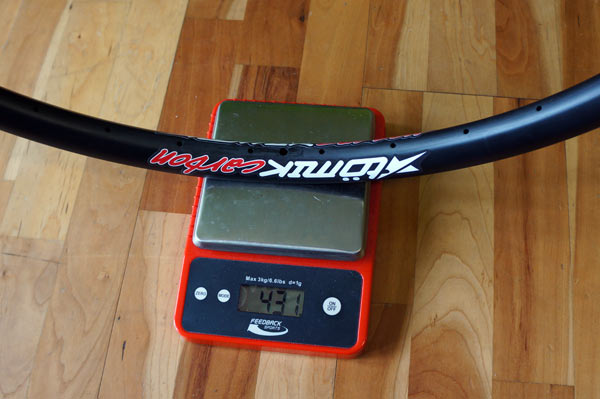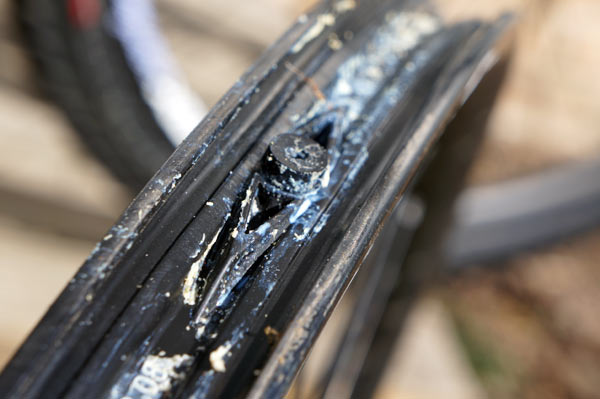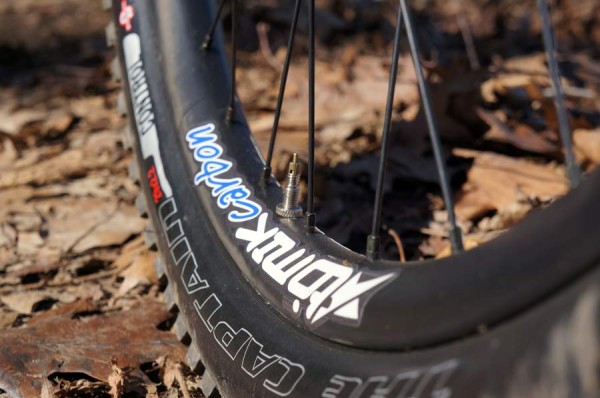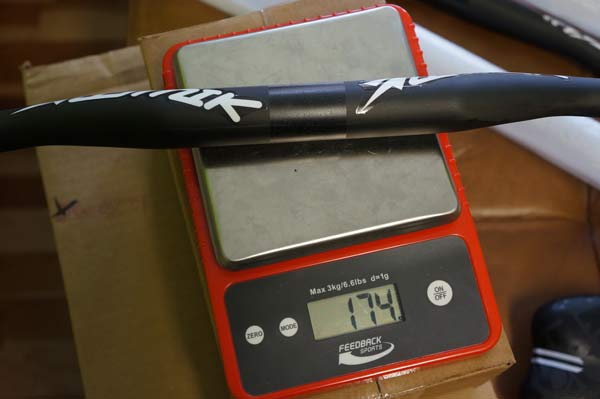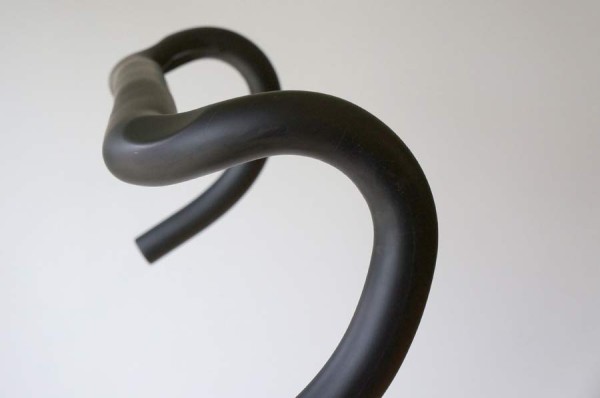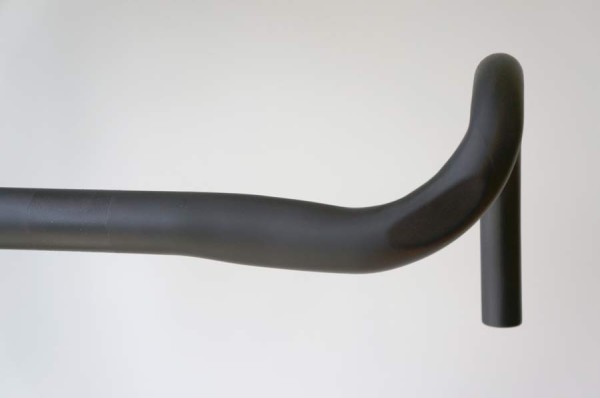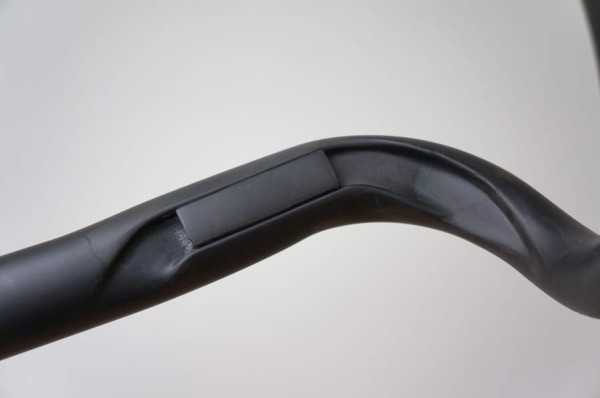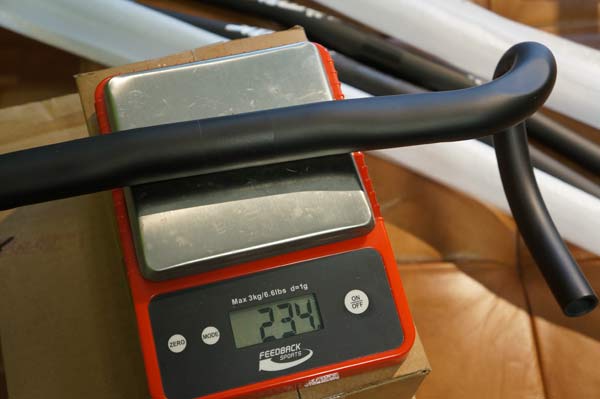Atomik is an upstart with a unique take on carbon mountain bike rims that not only introduces new tech, but brings it in at a comparatively affordable price.
They’ve partnered with a Taiwanese manufacturer that produces parts and frames for some of the world’s largest, best known brands. Atomik won’t disclose who, but say they’re Tour winning brands.
The rims are claimed at 33mm wide on the outside and 24.5mm on the inside. What sets them apart is the difference between those two, creating a very thick sidewall and bead hook. Co-founder Wayne Lee says that’s the part of the rim that takes the impact, so they wanted to build it stronger without affecting how the tires sat on them.
The wide bead hooks aren’t the only difference. The secret ingredient is a “bed” layer that makes it ride smooth…
UPDATED: Corrected rim pricing and complete wheel prices added.
THE BACKSTORY
On his tour of bike shops throughout the southeast, Lee swung by our office to show off Atomik’s parts and lend us a 29er wheelset to try. Lee was the co-founder of the Jamaican Fat Tire Festival, where he met a lot of folks in the industry, including some of today’s top “enduro” and freeride mountain bike pros. That got the bug in him to grow his involvement in the industry.
He’s been working on the product for the past year. Lee approached Light Bicycle about distributing products in the US to handle warranty and sales. The deal was almost done, but after a little checking around, said things weren’t quite what they seemed with LB. Then he found the factory that produced for them and wasn’t terribly impressed.
Despite those setbacks, Lee really wanted to do something with carbon parts in the US. So he found that aforementioned high quality factory. In Taiwan. And things started moving quickly. They developed a proprietary rim profile and layup for their mountain bike rims and sourced a few existing parts to round out the launch lineup.
ATOMIK MOUNTAIN BIKE RIMS & WHEELS
The profiles show the width of the sidewalls, a massive 4.25mm at top of bead hook. The center channel has a nice, rounded and smooth profile to help the tire slide up and seat easily. Our test set of wheels already had tires on them, so we didn’t have to set them up from scratch, but we pulled one off for width measurements and it seated right back into place with only a floor pump.
The tech secret is a sandwiched layer of vibration damping material. They won’t disclose what it is or how it’s placed there until the patents are done, but they say it helps smooth the ride and improve impact resilience. Like most brands, woven carbon fiber is used at the spoke holes to maintain strength when drilled, but the rest of the rim construction uses unidirectional fibers.
Actual weight on a production rim was 431g. That’s inline with the 420g +/- 15g claimed weight, but these preproduction (and very thick) decals likely added 10-15g. They’ll have sleeker, lighter and much better looking graphics when they ship to shops/customers. And the “carbon” part of the logo will be gone, just a cleaner Atomik branding will remain. And probably in a more muted tone.
Widths were spot on at 33mm external and 25mm internal.
Not sure what’ll be included with the rims, but these tubeless strips/tape were pretty slick.
Spoke holes are drilled directionally to put less stress on the spokes. The AM 29er rim, tested and shown here, are 32 hole front and rear. They’re also working on an AM27.5 with the same width and features.
I had the wheels for a few weeks, during which Mother Nature and the powers that wield the trail closure gates only allowed for a few good rides. First impressions are good. The wheels were provided with Hope EVO II hubs set up for thru axles on both ends. Trading between bikes with alloy wheels, the difference was stark. The Atomiks had better precision when cornering hard, and made more definitive movements when navigating rooty, bumpy sections. The fat Specialized Captain 29×2.2 tires seemed well rounded and hooked up very well with about 24-26psi. The front held air fine, the rear had a slow leak, but Lee had forewarned it might be low on sealant. When we pulled the tire off to measure widths, it was all but dry.
Compared to other carbon rims, it was really too short of a test to put any hard opinions out there. They’re laterally stiff, and they held the tires well, even when the rear dipped precariously close to single digit psi’s. The vibration damping layer is a neat concept, but with huge tires and low pressures, I can’t honestly say I’d feel it. But, I do appreciate the line of thinking, and anything that reduces vibration, however slight, will lead to a better ride. Take that away and you still have a seemingly solidly built carbon rim that’s massively wide and respectably light. At a retail of just $350 $375 each with a two year warranty, they look all the better. Especially without these decals.
Complete wheels will be offered with the Hope EVO II hubs ($1,450) and a higher end Profile Elite subset ($1,700). Pricing on those is TBD. It’s worth mentioning that there was noticeable drag on the rear Hope hub. Could be that they were still being broken in – the wheelset was brand new. This was my first time on Hope hubs, so I can’t compare to past experience. Lee says the Profile hubs are pretty stellar, so might be worth the upgrade. If pro endorsements are the type of thing that sway your purchase decisions, they’re working with an undisclosed top name athlete to test them. Look for names to be made public soon enough.
ROAD RIMS, COCKPIT PARTS & FUTURE PLANS
At launch, road and mountain bike handlebars will also be offered are focused on shape and weight.
Mountain bars should be around $110, road compact drop bars around $160. Prices should be finalized by end of March, and products should be ready to deliver in April.
The shape of the drop bars was very nice, with well thought out ergonomics and cable management.
Road rims are also on tap, but the designs are not entirely their own. They come from the same engineer, but they’ll have sole U.S. distribution rights. A 50mm deep road rim is being tested in cyclocross applications now, and they’re confident it’ll prove super strong. Road rims are $425.
They’re going after the independent bike shop rather than direct sales. Lee believes the products’ benefits should be properly conveyed to the consumer, and the local bike shop is the best entity to do that. They have a shop demo program, providing wheels built with Hope EVO II hubs and tires preinstalled, they’ll just need to add rotors.
Atomik could end up being more than just a cycling products brand. They’re looking at hockey, lacrosse and other sports, too, but for now, bikes are the focus. Both Lee and Atomik co-founder Kevin Lineberger are passionate cyclists.
Wanna try them for yourself? They’ll be at the SE Bike Expo this weekend in Conyers, GA.
